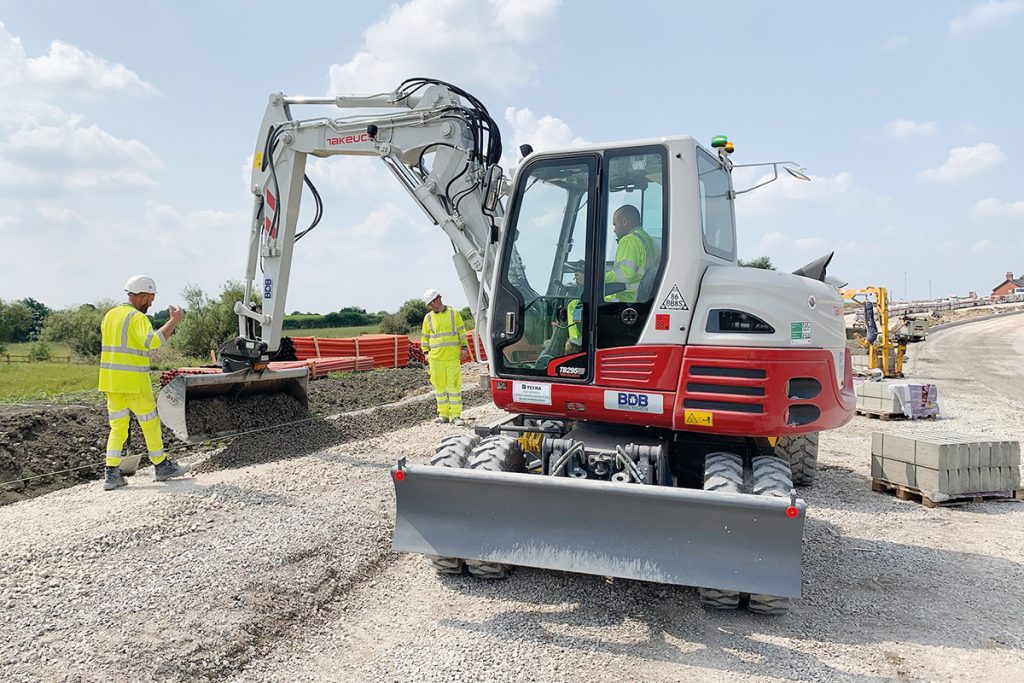Over the past number of years we have contacted most of the local authorities around the country to enquire what kind of rates are being paid to contractors on civils work undertaken on behalf of the state.
The Irish government is very good at creating legislation however when it comes to enforcing it that is another matter.
This is ever more the case when those charged by the state with the management of our local authorities want to protect their allocated annual budget. They will pay scant regard to the law they are bound to uphold.
The Office of Government Procurement clearly sets out in its document regarding the use of the PW-CF6 Short Public Works Contract how such abnormally low tendered rates should be dealt with.
In this document ITT-W4 v 1.5, it states in Clause 6.3, “If in the Contracting Authority’s opinion, the tendered price is abnormally low or any tendered amounts (including the rates tendered in the tender documents) are abnormally low or abnormally high, the Contracting Authority may require the Tenderer to provide details of the constituent elements of the tendered Price or the tendered amounts.
This may include (without limitation) the information listed in Regulation 69 of European Union Procurement Regulations (Award of Public Authority Contracts Regulations) 2016). Any failure to provide such information, when requested may exclude the Tender from further consideration.
If, having considered the information provided, the Contracting Authority is of the view that either the price is abnormally low or any tendered amounts are abnormally low or abnormally high, the Contracting Authority may reject the tender.”
Time and time again contractors call us to tell us that the civils works manager practically want them to perform miracles when it comes to labour and equipment hire. They want you to take all of the risk and get the best of equipment, all while complying with all the rules as set out by the state.
However when it comes to getting paid a decent rate that allows you to pay down the finance on a new machine or pay the person operating the plant machinery, plus cover insurance, fuel etc, contractors are finding they are coming up short all the time.

How are you making it work?
It has now become common practice for local contractors not to tender for local works as the contractor knows they cannot make it work with the money on offer. So the question has to be asked of those that do actually win the work, how are they making it work?
In many instances much of the work and awarding of contracts is done on a nod and wink.
A contractor knows already he is getting the work even though the local authority goes through a cosmetic tendering process.
For those that tender, when they see the final price they scratch their heads and say ‘it cannot be done’.
Look for example at how the only major project in the country – the Ballaghadereen to Scramogue bypass = has progressed.
Subsequent to the previous contractor, Roadbridge, going out of business there has only been one contractor to actually tender for the project. When we discuss this with contractors on the record, they tell us that the risk to the contractor is far too high as costs are a moving target and they would not be certain that they would come out of it in a positive situation.
When work is won on the basis that it is cheaper than others there is going to be a price paid down the line. And we are hearing about sub contractors on jobs working on behalf of the state not getting paid, late payment and then sub contractors being asked to accept less than what is owed.
So how is it being done?
We are all familiar with the SEO rates of pay, the Sectorial Employment Order for construction works and operators fall under the classification of General Operative which guarantees the rate of pay for the operator. These rates are clearly not being met if you are ‘DOWN THE COUNTRY’. Contractors will use any angle at all to win the work and the reality is the only way to be cheaper than everyone else is to mess around with the labour rate paid to the operator.
Who to blame
Do we blame the contractor fpr not paying the SEO rates of pay? Maybe not because when we talk to them off the record they clearly state that the local authorities will use sharp practices whereby you are all but working directly for the local authority without actually being on their payroll.
It is important to understand that in the late 2000s local authorities cleared out their plant machinery divisions and let go of their operators through early retirement and redundancy to offset costs and then hiring-in plant and operators for most of the local civil works. It became a sport then to screw the sub contractor.
Demands are being made on sub contractors by the local authorities that they must provide the best and greenest plant equipment and yet the state does not want to pay for it. They want us all to be green and pay for it but yet when it comes to the state they don’t seem to mind bending and breaking their own rules.
There is a saying, “who is going to police the police,” and in this case the answer is nobody. They can act as they wish and turn a blind eye to the rules being broken because it suits them and also protects their budget.
by Brian Coogan CEO of the IPCA








